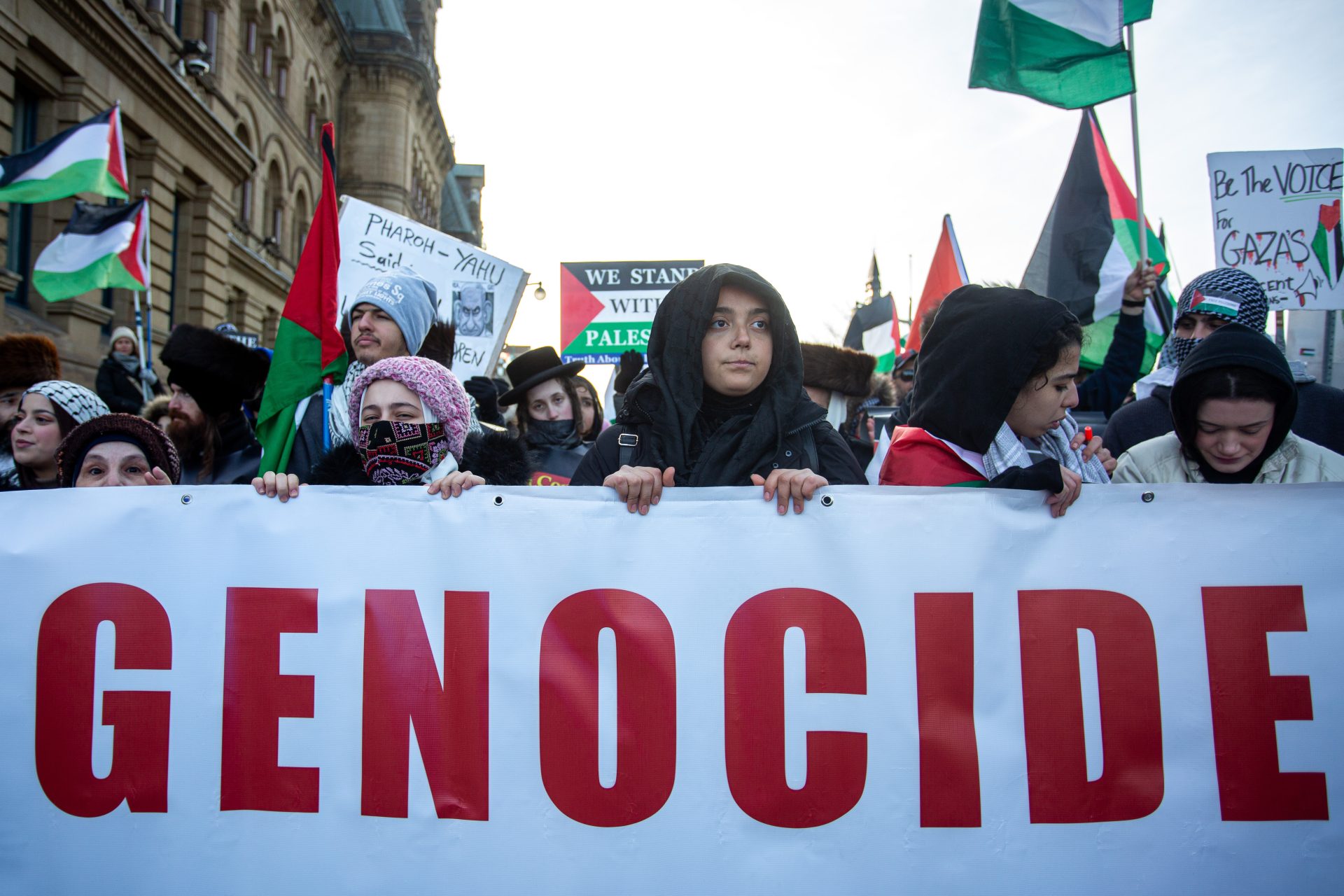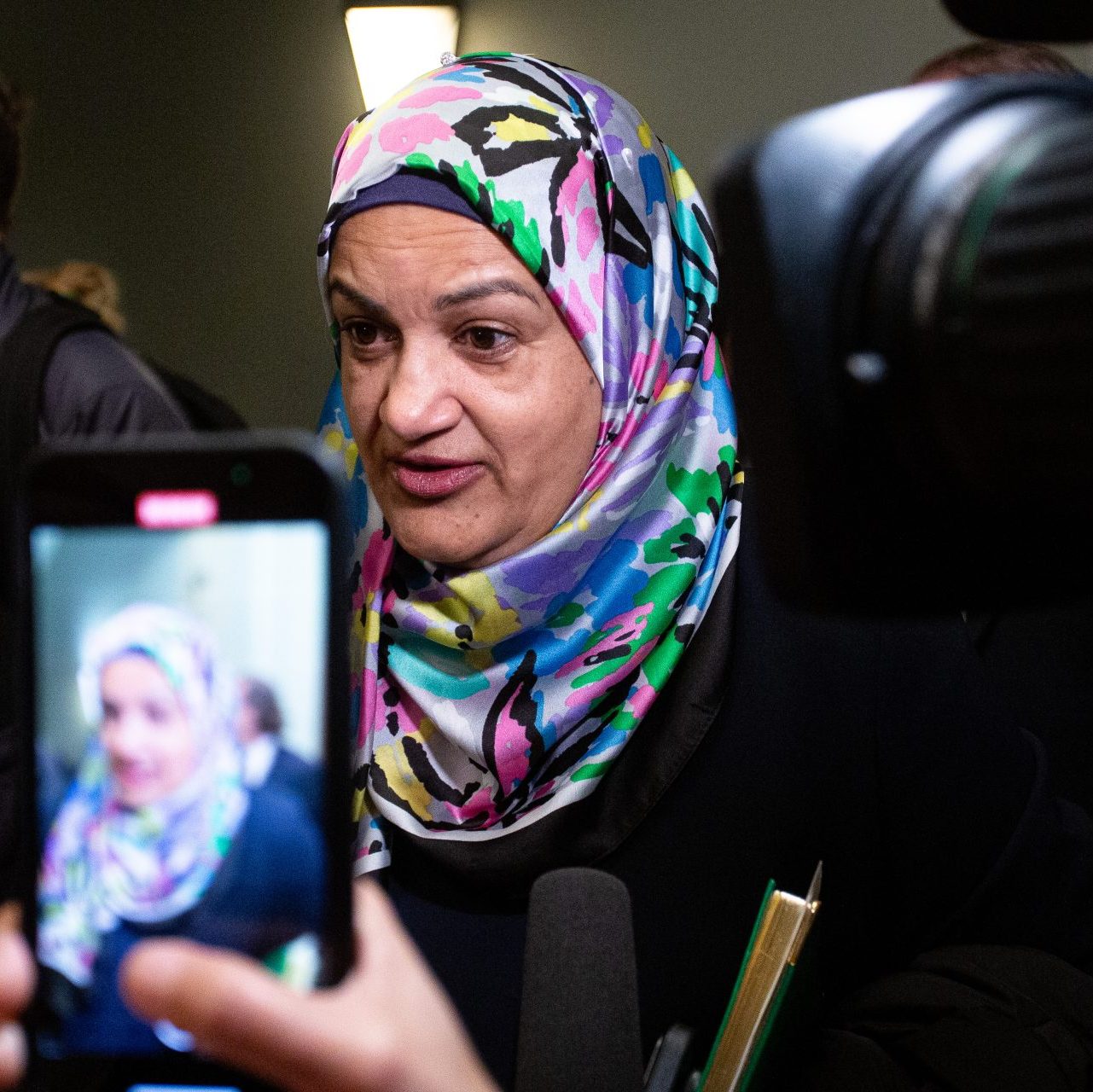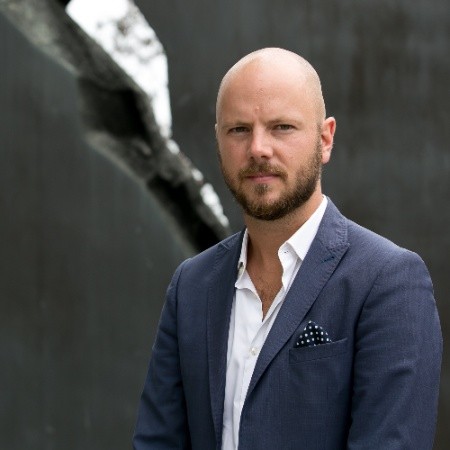Tactical neutrality may avoid inflaming Liberal caucus divisions, but Canada can’t escape ICJ ruling consequences with silence: international law experts

Amidst South Africa’s case before the International Court of Justice accusing Israel of committing genocide against Palestinians in its war against Hamas, the Liberal government may be trying to strike a tone of tactical neutrality to manage both a divided public and caucus. But international justice experts say silence won’t allow Canada to escape the consequences of the court’s ruling.

On Jan. 9, Liberal MPs Anthony Housefather (Mount Royal, Que.) and Marco Mendicino (Eglinton–Lawrence, Ont.), the former public safety minister, urged the government to reject South Africa’s International Court of Justice (ICJ) submission, calling it “baseless and unconscionable,” and that they agree with former Supreme Court of Canada justice Rosalie Abella’s assessment that it is a “legal absurdity to suggest that a country that is defending itself from genocide is thereby guilty of genocide.”
Earlier that day, Liberal MP Salma Zahid (Scarborough Centre, Ont.) called on Canada to support South Africa’s application, writing in a statement that if Canada is to give meaning to its own calls throughout the conflict, “all parties must act within international law and have a duty to take active steps to ensure the protection of civilians … we must support the process at the [ICJ] and the tenets of international law.”

Over the course of South Africa’s and Israel’s oral arguments on Jan. 11 and 12, seven more Liberal MPs—Iqra Khalid (Mississauga–Erin Mills, Ont.), Chandra Arya (Nepean, Ont.), Omar Alghabra (Mississauga Centre, Ont.), Arielle Kayabaga (London West, Ont.), Sameer Zuberi (Pierrefonds–Dollard, Que.), Shafqat Ali (Brampton Centre, Ont.), and Bryan May (Cambridge, Ont.)—expressed either direct support for South Africa’s submission, or support of the ICJ and respect for its eventual ruling.
On Jan. 16, Zahid and Ali also travelled to Amman, Jordan, alongside NDP MPs Heather McPherson (Edmonton Strathcona, Alta.), Lindsay Mathyssen (London–Fanshawe, Ont.), and Matthew Green (Hamilton Centre, Ont.) to begin a week-long visit to that country, as well as the West Bank to meet with Palestinian refugees and progressive Israeli groups.
During a Jan. 12 press conference, Prime Minister Justin Trudeau (Papineau, Que.) said that Canada’s “wholehearted support of the ICJ does not mean we support the premise of the case brought forward by South Africa.”
In a statement released that same afternoon, Foreign Affairs Minister Mélanie Joly (Ahuntsic–Cartierville, Que.) echoed those comments, writing that “Canada’s unwavering support for international law and the ICJ does not mean we accept the premise of the case brought by South Africa,” and that the government will follow the proceedings “very closely.”
In its application, South Africa has asked the ICJ to consider whether Israel is committing genocide against the Palestinians in Gaza, or if one has the potential to occur as a result of Israel’s war against Hamas.
On Jan. 15, the war in Gaza marked its 100th day since the Hamas terrorist attacks of Oct. 7, 2023, which killed nearly 1,200 people—primarily Israeli civilians—and saw more than 240 hostages taken back to Gaza. The responding military campaign has killed more than 24,000 people, an estimated two-thirds of whom are women and children, according to the health ministry of Hamas-controlled Gaza. According to the Israel Defense Forces, that death toll includes more than 8,000 Hamas militants.
Operating out of The Hague, Netherlands, the ICJ is the top United Nations court established after the Second World War to advise on legal matters and settle disputes between states. Unlike the International Criminal Court, also based out of The Hague, the ICJ does not prosecute individuals.
South Africa’s 84-page application to the court claims to provide evidence of “acts and omissions” by Israel that it describes as “genocidal in character because they are intended to bring about the destruction of a substantial part of the Palestinian national, racial and ethnical group.”
The evidence South Africa points to in its applications includes both direct actions Israel is taking, such as the conducting of airstrikes, excessive civilian death toll and destruction of infrastructure, and its limiting of humanitarian aid, as well as the actions it is failing to take to prevent excessive harm to civilians. The submission also quotes numerous statements that South Africa claims demonstrate “genocidal intent,” including from Israel’s Prime Minister Benjamin Netanyahu, President Isaac Herzog, and Defense Minister Yoav Gallant, among several others.
While the Canadian government may have intended to indicate its support for the ICJ and the rule of law while remaining neutral on the premise of the case against Israel, CBC News’ Evan Dyer noted that both sides of the issue, as well as several news outlets, seem to have interpreted those statements as a rejection of South Africa’s claims, as both pro-Israeli and pro-Palestinian groups and supporters heaped praise and condemnation, respectively, based on the same misinterpretation.
On Jan. 15, Dyer again posted to social media to clarify Global Affairs Canada’s (GAC) official position, writing that Joly’s office had confirmed to him that Canada would “abide by all rulings” in the case, “both provisional injunctions in the short-term and a final determination on the allegation of genocide.”
At an earlier Jan. 12 press conference, Conservative Leader Pierre Poilievre (Carleton, Ont.) said that his party opposes the case, dismissing it as a shameless and dishonest attack against “the Jewish people and the Jewish state.”
Poilievre also accused Trudeau of playing to both sides of the issue by “telling whatever you want to hear, and then he is going to another group and saying exactly the opposite.”
In a Jan. 11 National Post editorial, Conservative foreign affairs critic Michael Chong (Wellington–Halton Hills, Ont.) and deputy leader Melissa Lantsman (Thornhill, Ont.) also took aim at the Trudeau government’s “silence” on the issue as of its publication.
Chong and Lantsman described the lack of a statement as betraying the Liberals’ “indifference … complicity, and [cowardice].” They also said the varying statements already made by Liberal caucus members should not be confused with “division,” but rather “a despicable political strategy,” giving Liberal MPs licence “to say one thing to one group of Canadians and another batch of Liberal MPs to say exactly the opposite to another.”
McPherson, who also wrote to Joly on Jan. 9 calling on the government “not to oppose” South Africa’s application, told The Hill Times that “in peak Liberal fashion,” the government seems to be attempting to “ride two horses in one race.”
“I think we all know that when you release something late on a Friday afternoon, you’re hoping no one’s paying attention,” McPherson said on Jan. 12, following the 4 p.m. release of Joly’s statement.
“We all know what they’re trying to do here because they really don’t want to take a side,” McPherson continued. “They’re not required to support or not support, just stay out of it until the court makes a determination, but when you’re in the government, you are expected to lead.”
Wait-and-see approach the right tactical move, says UofO professor
International criminal justice expert Mark Kersten, a University of the Fraser Valley professor, told The Hill Times that when Trudeau and Joly finally made the statement, it was, as he expected, “the classic, non-committal Liberal gobbledygook.”
“They’re trying to have it both ways and please everyone, but they run the higher risk of just making everybody angry,” Kersten said in a Jan. 15 interview, adding that it is still a preferable response than a complete dismissal of the case as “meritless,” as United States Secretary of State Antony Blinken described the case on Jan 9.

For Kersten, the “ideal statement” would have combined a clearer commitment to accept whatever the court decides, and a reiteration of Canada’s “duty to prevent genocide.”
Instead, Kersten said the government’s current position has allowed either side “to splice parts of it to make whatever point they want to make,” while not being clear about “what, if anything, Canada will do about it.”
While Kersten said he had hoped for a more explicit statement from the government, he doesn’t believe it is necessary for Canada to take a side and that “the best play is for Canada to simply accept the rule of law and not pronounce on it beforehand.”
However, while there may not be any legal obligations, Kersten said he also recognizes the political pressure the government faces, and has seen firsthand the divisions within the Liberal Party, both in his discussions with MPs as well as during his appearance before the House Foreign Affairs and International Development committee on Nov. 29, 2023.
“It’s very clear to me that there are some pretty serious divisions within the government and the Liberal Party, in particular, over what to do about this,” Kersten told The Hill Times, adding that he believes the statement was structured to at least not inflame those divisions. “But I don’t know if it’s going to be enough for everyone.”
Additionally, even if the government’s current position doesn’t deepen the current caucus divide, Kersten said its attempt to maintain neutrality may not be tenable for long.
“The risk is they’ve just pushed their ultimate position down the line and papered over a smouldering fire in the caucus,” Kersten said. “Maybe that’s wise on their part, but the challenge for the government is they do not control what happens next, and I don’t think the judges at the ICJ care what Canada thinks.”
John Packer, an associate law professor and the director of the Human Rights Research and Education Centre at the University of Ottawa, told The Hill Times that “on a tactical basis,” it is also prudent for the government to wait to hear what the ICJ’s ruling will be before taking a stand on the merits of the case.
Packer explained that if Canada had chosen to take a position against South Africa’s claims, it would have proven problematic given its intervention alongside Denmark, France, Germany, the Netherlands, and the United Kingdom in The Gambia’s case accusing Myanmar of genocide, as many of the arguments made in that case are consistent with those made by South Africa.

“If we were going to say those arguments don’t apply in the Israel case, Canada is going to look stupid in the Myanmar case,” Packer explained.
While that doesn’t mean Canada needs to take a position to either support or reject South Africa’s submission, if the courts find that there is substance in its initial claim that there is a “prima facie” risk of genocide and rules in favour of provisional measures, Canada’s attempts at neutrality would become unsustainable.
“I don’t see how Canada can remain neutral in this,” Packer said. “There will be consequences, and Canada can’t escape them with silence.”
While the ICJ’s rulings are legally binding on parties to the court, Packer noted that it would only be enforceable with the authority of the UN Security Council—a vote on which he expects would be vetoed by the U.S. He said the “duty to prevent” would still be required by all states, and they would not need the go-ahead of the Security Council to act on that duty.
Additionally, should the U.S. veto the ICJ’s ruling for provisional measures, it could open a “Pandora’s box” of uncertainty in the UN and the international community, and a potential “conflagration” of escalating violence in the region.
Packer said that in the event of a U.S. veto, several options are still available to the remaining members of the UN General Assembly. He said that while it couldn’t override the veto, the assembly could vote to take steps itself, including adopting a resolution condemning the veto and giving “moral approval” for those states who choose to act unilaterally, as was the case with the military intervention in Kosovo.
“That’s the Pandora’s box,” Packer said, explaining that while the general assembly does not have the legal authority to require military action, it could make a statement of tolerance or even approval for it.
“States are allowed to take measures to counter wrongs by other states, but those measures must be targeted and proportionate to the harm being done,” Packer said, explaining that while those measures usually mean trade restrictions or diplomatic sanctions, beyond those requirements, there is no real exclusivity to what could be done.
“There’s not necessarily a limit because, if we’re talking about a military prosecution of a genocidal character, that raises the question of whether a legitimate, targeted, and proportionate response also includes military action,” Packer explained. “We don’t really know where this will go.”
While Packer said there is still an enormous amount of uncertainty around how the court will decide, what the consequences of that decision will be, and how different states will respond, he said that Trudeau and his government will need to begin making some tough decisions, not just about Canada’s position on Israel and Palestine, but also on how best to lead a divided Canada in an increasingly complex and insecure world.
“[Canada] is getting squeezed on this, but there’s no way out; that’s just the world.”
The Hill Times
Selection of Liberal MP reaction to South Africa’s submission to the ICJ:
- Salma Zahid (Scarborough Centre, Ont.): called on Canada to support South Africa’s application: “Throughout this conflict Canada has been clear that all parties must act within international law and have a duty to take active steps to ensure the protection of civilians. If Canada is to give meaning to those words, we must support the process at the [ICJ] and the tenets of international law.”
- Anthony Housefather (Mount Royal, Que.) and Marco Mendicino (Eglinton–Lawrence, Ont.): released a statement, calling the accusation that Israel is committing genocide “baseless and unconscionable” and agreeing with former Supreme Court justice Rosalie Abella’s assessment that it is a “legal absurdity to suggest that a country that is defending itself from genocide is thereby guilty of genocide.”
- Iqra Khalid (Mississauga–Erin Mills, Ont.): wrote on social media that she supports South Africa’s submission to the ICJ and will respect whatever ruling it makes: “Credible allegations that international law has been violated must be investigated, and those responsible must be held accountable. This is not about taking sides. No nation can be above the law.”
- Chandra Arya (Nepean, Ont.): said that Canada should support South Africa’s submission, arguing that not doing so would amount to a “U-turn” on the arguments Canada itself made in its intervention regarding the case against Myanmar.
- Omar Alghabra (Mississauga Centre, Ont.): called for the ICJ to be allowed to scrutinize and adjudicate South Africa’s claims: “Who else can be the judge? That’s what the rules-based order means.” Alghabra’s post was also reposted by MP Arielle Kayabaga (London West, Ont.).
- Sameer Zuberi (Pierrefonds–Dollard, Que.): said that Canada should allow the court and its 17 judges to examine the case and that “respecting [the ICJ’s] decision, whatever it is, is crucial.”
- Shafqat Ali (Brampton Centre, Ont.): called on the government to “support the court and its processes as well as the decision that it renders.”
- Bryan May (Cambridge, Ont.): said he is in “full support” of the investigation by the ICJ and that he hopes the judgment is respected by the international community.”






 LICENSING
LICENSING PODCAST
PODCAST ALERTS
ALERTS













